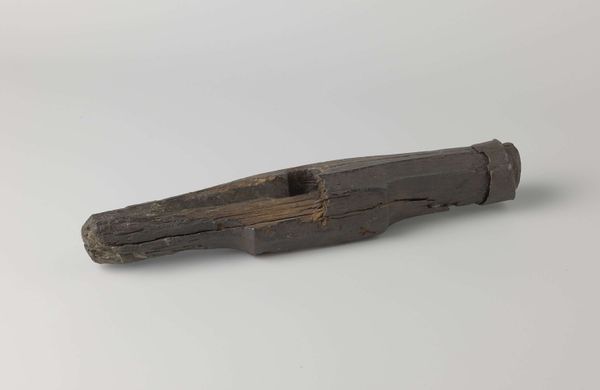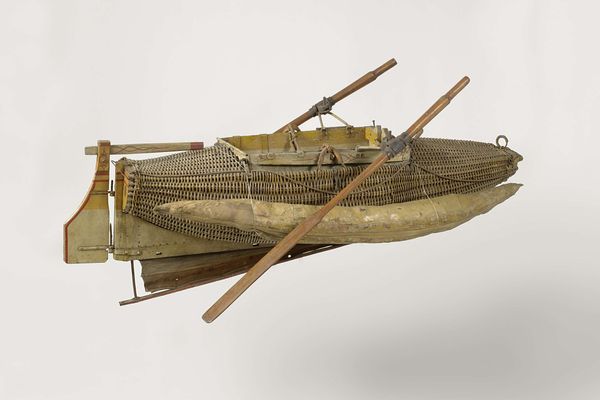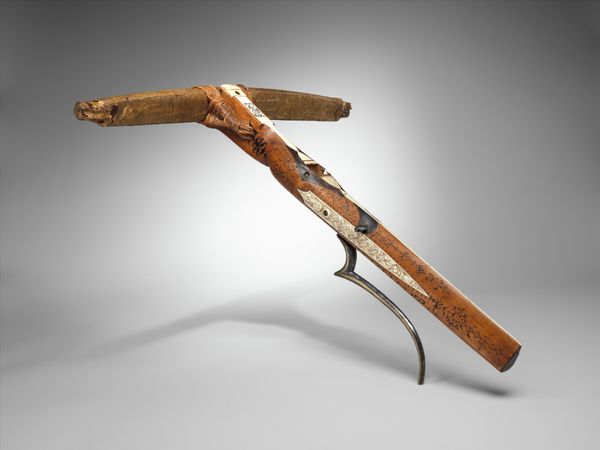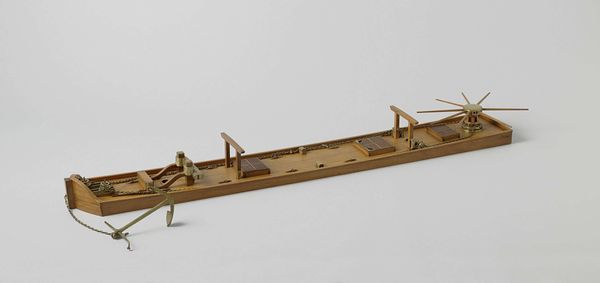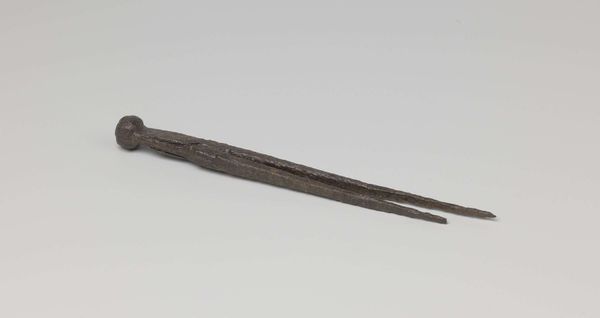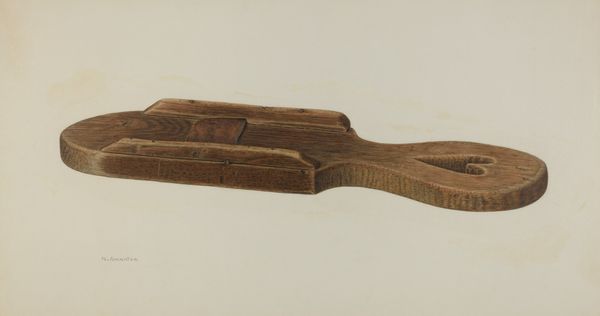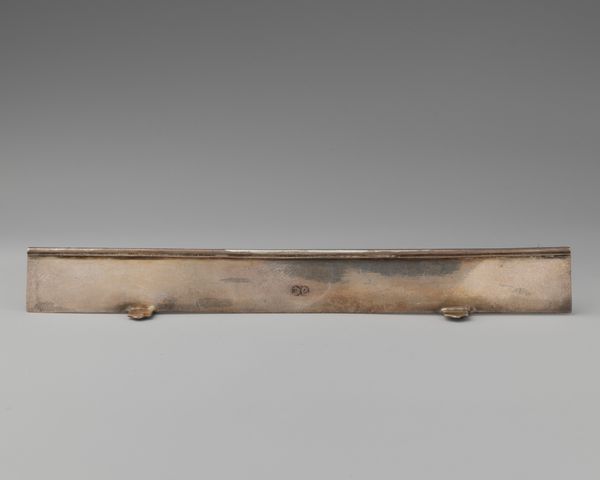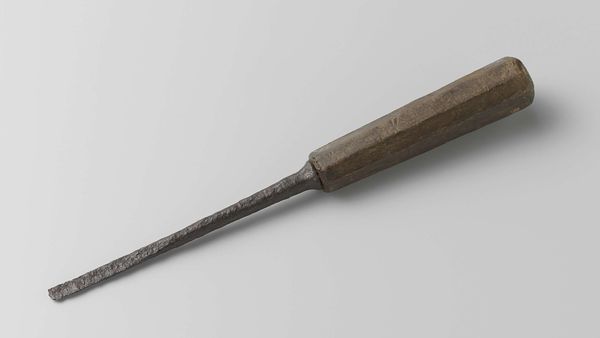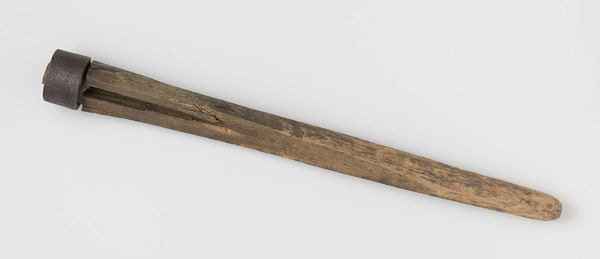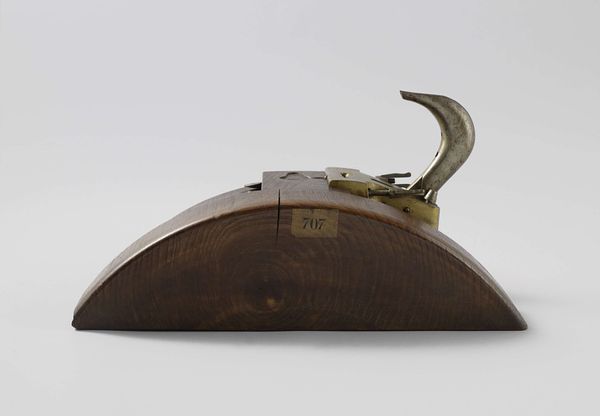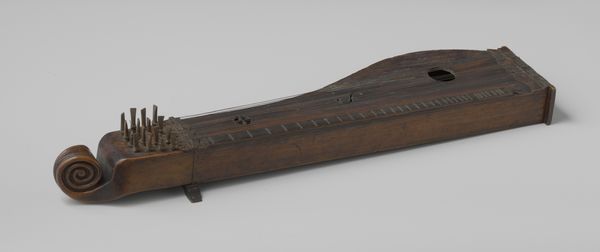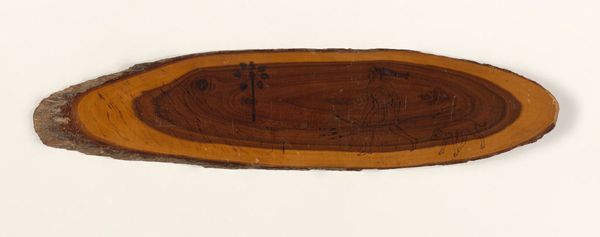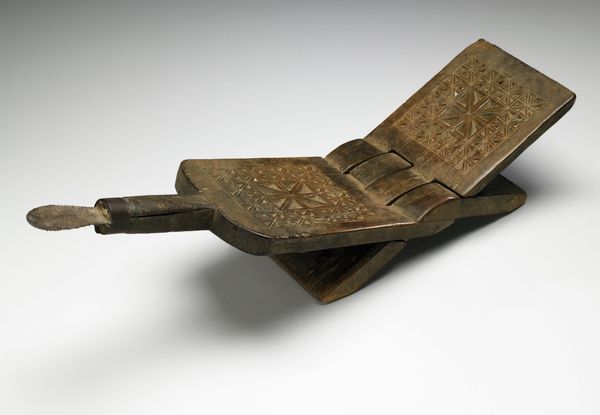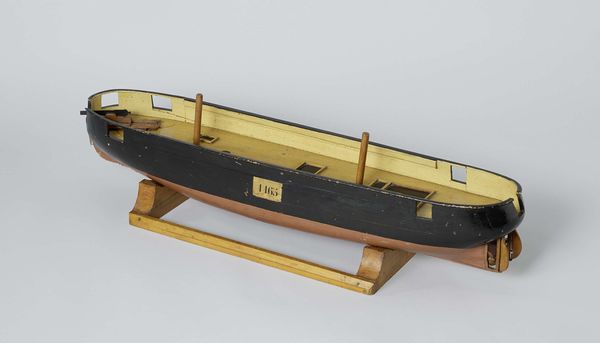
assemblage, metal, wood
#
medieval
#
assemblage
#
metal
#
wood
Dimensions: length 10 cm, width 4.5 cm, depth 7.7 cm, length 32 cm, width 7.4 cm, depth 4.2 cm
Copyright: Rijks Museum: Open Domain
This is a caulking mallet, made in Zaandam around 1697. The head is carved from dense hardwood, while the wedge is a sturdy metal. Now, this isn't exactly fine art, but it's a fascinating artifact. Caulking mallets like this were used to drive fibers into the seams of wooden ships, making them watertight. Imagine Peter the Great, the Tsar of Russia, working alongside Dutch shipbuilders, learning the secrets of their maritime power. The shape of the mallet is entirely dictated by its function. The weight and balance had to be just right for efficient work. You can almost feel the impact of the mallet against the caulking iron. The metal wedge is a testament to the durability required for this repetitive task. This object reminds us that even the most humble tools can carry immense historical weight. It challenges us to think about the relationship between labor, technology, and the rise of global empires.
Comments
No comments
Be the first to comment and join the conversation on the ultimate creative platform.
